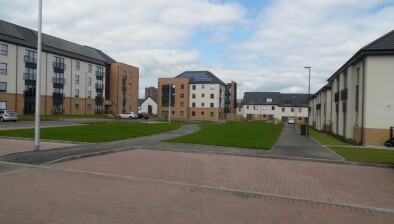Private rented sector tenants living in poverty up 75% in a decade

Pauline McNeill MSP
The number of people in the private rented sector (PRS) who are living in poverty has increased by 75% over the past decade, according to new analysis.
Scottish Government data has revealed that 160,000 people in the sector were living in relative poverty during the three year period between 2004 and 2007.
However, the latest three year period, covering 2014 to 2017, reveals that figures is now 280,000.
Relative poverty is defined as having an income of below 60% of the UK median income.
The number of people living in severe poverty after housing costs - based on bringing in under half of UK median income - rose by two thirds (67%) in the same period.
Scottish Labour, which carried out the analysis of the government data, said the figures underline the cost of the housing crisis, with a lack of affordable housing pushing low income people into the under regulated private rented sector.
Scottish Labour housing spokesperson, Pauline McNeill, said: “Scotland’s housing crisis is seeing private sector rents rising faster than people’s wages, making housing even more expensive and pushing working class people below the breadline.
“Too many young families are caught in a vicious cycle – a lack of affordable public housing forces people to rent privately and as a result they are paying rip-off rents which hammers their cost of living.
“There has been an explosion in poverty in the private rented sector. Labour has announced a target to build at least 12,000 council and housing association homes per year, and we deliver the reforms the private rented sector needs to see.
“Labour’s Mary Barbour law would people hope that they can have secure, affordable tenancies. Only Scottish Labour has a plan for real change in the housing sector which will help the many, not the few.”
Scottish Labour has set a target of 12,000 council and housing association homes built per year and will bring forward a ‘Mary Barbour law’ to help deliver fair rents in Scotland.
Housing minister Kevin Stewart said: “The UK government’s continued benefit cuts will remove £4bn from people’s pockets by the end of this decade and have a detrimental impact on those on low incomes in all sectors.
“The roll out of the shambolic Universal Credit has exacerbated this further and the UK government’s freeze on the Local Housing Allowance (LHA) cap means in most areas of Scotland private rental costs have substantially outstripped what can be paid through housing benefit, meaning even those on the lowest incomes will need to supplement the shortfall from wider benefits or other income, leading to hardship or housing crisis.
“That is why we are investing over £125m this year alone in welfare mitigation to protect those on low incomes from UK government cuts and have continually called on the UK government to change their policies on welfare which are hurting people.
“In addition, our Private Housing (Tenancies) Act modernised tenancies for those in the private rental sector with modern open-ended tenancies where landlords cannot evict tenants simply because their agreement has reached its end date, while rents can only be increased once in a 12 month period, and then only with three months’ advance notice.”







